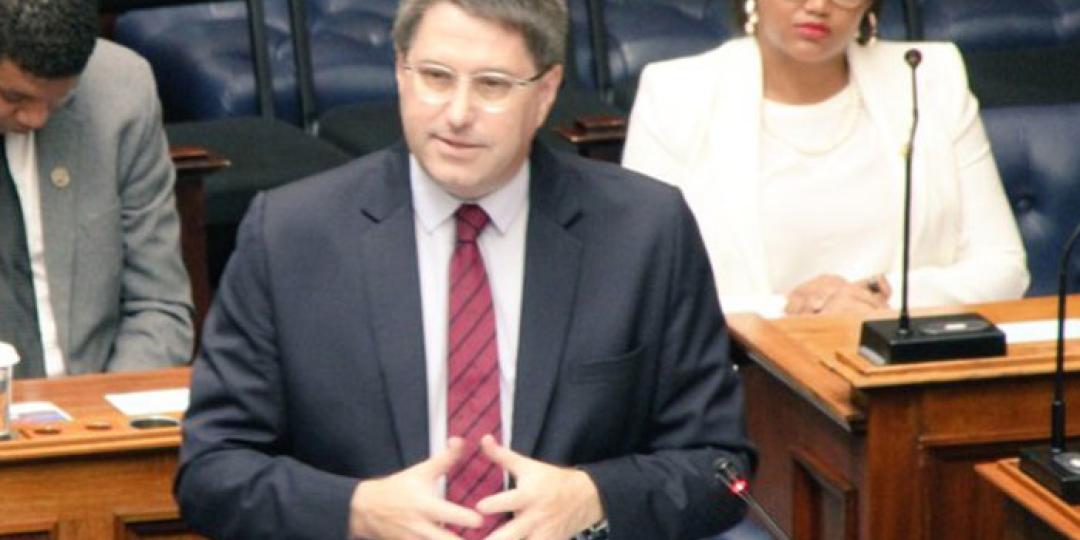Western Cape MEC of Finance and Economic Opportunities, David Maynier, has written to Minister of Co-operative Governance and Traditional Affairs, Nkosazana Dlamini-Zuma, with an attached submission detailing an alternative approach to safely open international travel in a way that avoids confusion and uncertainty.
“International markets are a key economic driver for the tourism sector in the Western Cape, and so the full reopening of our borders to leisure travellers, with stringent health protocols in place ahead of the summer season, is absolutely critical to the sector’s immediate recovery, medium-term stability and long-term survival,” said Maynier.
He pointed out that the risk-based approach regulating international travel – released by national government on September 30 – had created unnecessary confusion and uncertainty in the travel and tourism industry.
“The current restrictions allow business travellers from high-risk countries to enter South Africa with a negative PCR test, but not leisure travellers, which makes no sense and is unfair,” said Maynier.
“There is simply no greater risk for transmission of the COVID-19 virus based on the purpose of travel, yet the negative impact of continuing to limit the entry of leisure travellers to South Africa, especially from our key source markets, is severe and extreme.”
The MEC’s submission proposes the following:
Do away with risk-based country categorisation model.
- Require all travellers to present a PCR test on arrival, conducted at least 72 hours prior to arrival.
- The PCR test result should not have to be signed by a medical practitioner. In many countries testing is conducted by a lab and results issued electronically.
- Require all travellers to download the COVID-19 alert app and complete the tourist locator form to ensure that details of the trip, including accommodation and length of stay, are captured.
- Screen all travellers on arrival at the airport by Port Health officials.
- If a traveller displays any symptoms they will be referred to a dedicated private testing centre at the airport (these will need to be set up), which will be at the traveller’s own expense. This will prevent the use of public transport to reach testing facilities and therefore will limit the potential spread of the virus.
- Any travellers who test positive will be required to quarantine at an accommodation venue of their choosing for 10 days and at their own expense.
- Paperless processes need to be urgently developed for all visa applications and other Home Affairs processing.
- Clear and easy to access information needs to be provided on government webpages, which need to be updated regularly.
- Travellers who visit South Africa for business should be permitted to extend their stay for leisure purposes.
Maynier pointed out that the tourism sector was a major contributor to the economy and employment in South Africa and in the Western Cape. In 2019 international tourism contributed R81.2 billion (€4.1bn) in total foreign direct spend (excluding capital expenditure) in South Africa.
“Leisure travellers from key source markets such as the United Kingdom, United States, Netherlands and France make the most of our favourable exchange rate and have a high spending potential, which positively impacts our local economy,” he said.
As a result of the COVID-19 pandemic, job losses are predicted to be most severe in the tourism industry, with an estimated 75 000 jobs at immediate risk, affecting 43.1% of the industry with a potential loss of 61% of GVA in the Western Cape.
Maynier added that a substantial percentage of tourism businesses were geared towards international markets with many not able to pivot (entirely) towards domestic markets as international tourists stayed longer than domestic tourists and they also spent much more per day per trip.
Given disruptions to the school calendar, the domestic travel season might also be much shorter this summer. These motivations further reinforce the importance of international arrivals for the tourism sector’s recovery, stabilisation and survival.
TBCSA seeks urgent meeting with government
CEO of the Tourism Business Council of South Africa, Tshifhiwa Tshivhengwa, agreed, noting that there had been concerns about what the reopening of borders would mean for the country, including the concerns about the list of high-risk countries that are not permitted to enter South Africa, even at this level.
“We would like to reassure the industry that this is a priority for us at the moment. We have requested an urgent meeting with Government to further clarify the method used to draft the list of high-risk countries and the practicalities surrounding this suggested phased reopening, so that this can be examined and its feasibility determined,” he said.
He reiterated a point made by Maynier that much work had been done by industry to ensure world-class standards around health and safety protocols.
“As South Africa reopens to international tourism, there has never been a more important priority than ensuring that we do so safely for staff and guests. Our duty as the tourism and hospitality sector is to inspire confidence that travel to South Africa is safe and easy,” emphasised Tshivhengwa.























